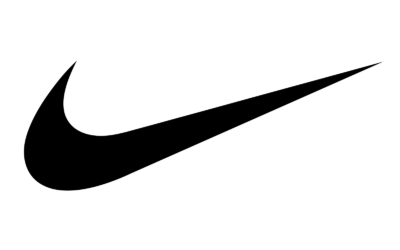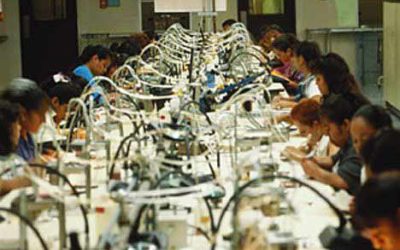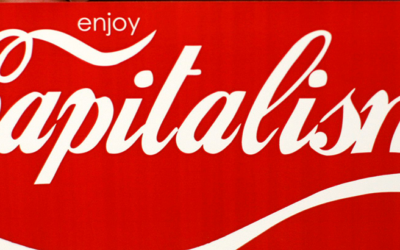Perfectly Legal, But Wrong
When “perfectly legal” is a lame excuse for doing the wrong thing
Facebook’s Fake News Problem
Facebook’s “News Feed” created a space for disinformation from Russia and other sources in the 2016 election. The problem remains, and although the company was ‘legal” in what it did, was it wrong? How wrong?
When the Tweet Hits the Fan
It is the week before Christmas, 2018. President Trump issued another “tweet” two days ago about removing all U.S. troops from Syria. Nothing illegal about that; it makes sense that a U.S. president heads foreign policy, with the advice and consent of the...
Kissing and telling most everyone: Morals of the kiss cam
Many of us have never considered the behind the kiss cam, and I certainly had not until this August when I heard two sports jocks complaining that the Dodgers “Kiss-Cam” was not nearly as spontaneous as people at Dodger Stadium might think.
Turns out that the kiss-cam crew goes around to appealing people and families, has them re-arrange their seating order (if need be) and gives the woman time to put on make up and prettify their hair. We can assume the men do some primping as well.
Kasky vs. Nike and the quarrelsome question of corporate free speech
The year of 2001 probably was not Nike, Inc., finest moments given that misleading statements that it made to the press and to the public about its operations in Southeast Asia labor activist opened a whole can of worms about whether the First Amendment applies to corporations making false or misleading statements.
After the U.S. Supreme Court agreed to review the decision, numerous business interests aligned with Nike’s appeal. Twenty-eight organizations and the U.S. government filed briefs as “friends of the court” to argue that Nike’s statements should be fully protected by the First Amendment.
The Kavanaugh Nomination: A Look Back
It is “perfectly legal” to nominate someone to the U.S. Supreme Court whose views on various important matters are far to the right of most Americans. But lying is wrong, and Kavanaugh’s temperament is questionable, given his florid and politicized denials in response to Professor Ford’s testimony.
Should Starbucks Have Called the Police?
Should Starbucks Have Called the Police? In April of 2008, Starbucks was in the news when a manager in a downtown Philadelphia Starbucks called the police to arrest two young black men who were asking to use the bathroom without purchasing anything from the store....
Nike’s “Sweatshops,” Social Activists, and Business Ethics
The U.S. Supreme Court’s First Amendment cases that distinguish between commercial speech and political speech are explained, and the arguments in favor of greater protection for Nike’s statements about its overseas operations are evaluated in light of Donaldson and Dunfee’s integrative social contracts theory. The hypernorm of “necessary social efficiency” is invoked to claim that the arguments made by Nike and various “friends of the court” in favor of greater protection for corporate speech are problematic.
Trustworthy Capitalism: Co-creating a more peaceful planet
Many observers are ready to “give up” on capitalism. There may be hope, depending on how it is structured, monitored, and regulated. Here is a lengthy article from the American Business Law Journal, from 2007, that sketches out how this may be possible.
Don Mayer is a writer who teaches law, ethics and sustainability at the University of Denver’s Daniels College of Business. This forum is for all who are interested in the sometimes crazy space between what is ethical (or “right”) and what is “perfectly legal.” You are welcome to subscribe to our monthly newsletter for the latest conflicts between what is legal and what is ethical.
Why “Perfectly Legal but Wrong?!”
People do seem to use the “it’s legal” excuse when something they do raises doubt about their moral bearings. Adding “perfectly” doesn’t do much more. If it’s legal, fine, but nothing is more “perfectly legal” than any other act that is legal. In fact, the use of “perfectly” often looks like a kind of fig leaf to cover the fact that someone is taking advantage of a loophole of some kind, or that the law just hasn’t caught up to that particular dubious practice.
In 2003, Pulitzer Prize winning journalist David Cay Johnston wrote “Perfectly Legal: The Covert Campaign to Rig Our Tax System to Benefit the Super-Rich–and Cheat Everybody Else.” The title tells it all: the U.S. public treasury is being systematically deprived of revenue by the so-called “super rich,” a slice of the 1% that has the most to gain by influencing the tax laws. The Panama Papers revealed that wealthy folks all over the world are evading taxes; while you might conclude they are “smart” on the basis that government is so bad it needs to be starved of revenue, but others (such as Johnston) would also regard them as shirking duties of citizenship and community.
In short, just because a practice is legal, doesn’t make it right. Opponents of abortion have known and acted on this for years. On the other side of the political spectrum, gun control advocates say that just because a mentally challenged young man can legally buy an AR-15 without a background check doesn’t make it “right.” Although in many places in the U.S., both abortions and unchecked purchases of assault weapons are, as some would say, “perfectly legal.”
People and businesses get into trouble all the time not knowing the difference between what they have a right to do and what is right to do. In 2018, United Airlines employees decided it was “right” to call security when a seated passenger refused to give up his seat on an overbooked flight. They had a right to do so, but the inevitable iPhone videos of the man being dragged forcibly off the plane struck most observers as horribly wrong.
At a Philadelphia Starbucks, company policy was enforced to call police to arrest “trespassing” customers: African Americans waiting for a third party and asking for a bathroom key without having purchased anything. The manager had the right to do so, and the police did come, and the two men were taken to jail. But again, having the right to do something under the law doesn’t always make it “the right thing to do,” and Starbucks soon found itself in a public relations nightmare. Even it’s efforts to help drew criticism: While it was legal to shut down all Starbucks for an afternoon and require all employees to attend a racial sensitivity training session, some regarded doing so as too “politically correct” to be truly correct.
Morality or ethics (and this site will use the terms as roughly equivalent) is tricky business. What seems right to one (having an abortion, calling the police on customers who don’t abide by company policy, avoiding taxes entirely) can seem clearly wrong to others. The legality (perfect or imperfect) becomes much beside the point.
This blog, and its fortnightly newsletter, will keep you up to date on the puzzling interactions between the law as written, and the morality of many individual, corporation, and governmental acts. No person, firm, or institution is without varying degrees of moral blindness, as we shall see, and in finding these ongoing situations we may just discern what is “most right,” or “most ethical.” It promises to be a fun –– though often strange –– journey.
Join Our Newsletter






